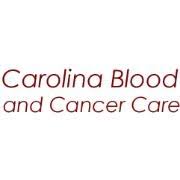
Dr Kashyap Patel Discusses the Importance of WES in Reducing Targeted Treatment Disparities

Kashyap Patel, MD, CEO of Carolina Blood and Cancer Care Associates, current president of the Community Oncology Alliance, and associate editor of Evidence-Based Oncology™, discusses his partnership with Sema4 and LabCorp and their joint goal to advance whole-exome sequencing (WES) for targeted oncology treatment.
Kashyap Patel, MD, CEO of Carolina Blood and Cancer Care Associates, current president of the Community Oncology Alliance, and associate editor of Evidence-Based Oncology™, discusses his partnership with Sema4 and LabCorp and their joint goal to advance whole-exome sequencing (WES) for targeted oncology treatment.
Transcript
How do you hope to advance WES in the community oncology setting to address genomic testing disparities?
We submitted a few abstracts, and one of them was actually the whole-exome sequencing. I started talking about disparity with all of my lab partners, and 2 big labs—Sema4 and LabCorp—they both came on board to start helping us out, working with patients so that if patients cannot pay for the sequencing, we would let go of their out-of-pocket costs to make sure that patients do not feel discriminated if they don’t have resources for being sequenced and typed.
And with 2 companies, Sema4 and LabCorp, we started doing NGS [next-generation sequencing] and whole-exome sequencing. We found, really, the mutations that are actionable that would make a difference in the patient’s treatment. The studies are ongoing. We started this study by reaching out to, again, leadership. We convinced them that there’s a lack of reflection of the minority patient population in the global genomic database, something called genome-wide association studies, where 80% of the database is Northern Europeans, only 2% Black, 1% are Hispanic.
These 2 companies have provided us with the research tools, with the sole purpose of addressing disparities in the genomic testing. The first phase started at my clinic; we satisfactorily fulfilled all of the requirements. So now we are expanding that study to about 5 sites in Sema4 and 10 sites in the LabCorp study.
I do believe that appropriate representation of population genomics is a key to the success of precision medicine initiatives.
Newsletter
Stay ahead of policy, cost, and value—subscribe to AJMC for expert insights at the intersection of clinical care and health economics.









